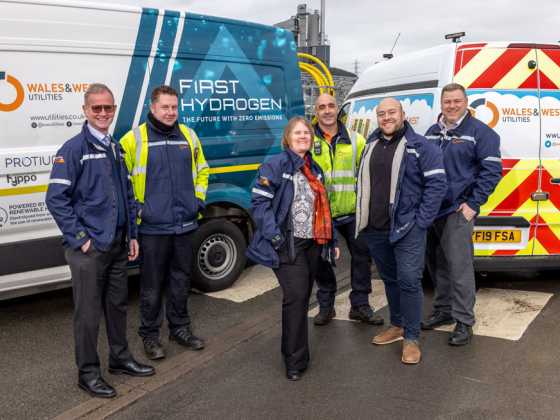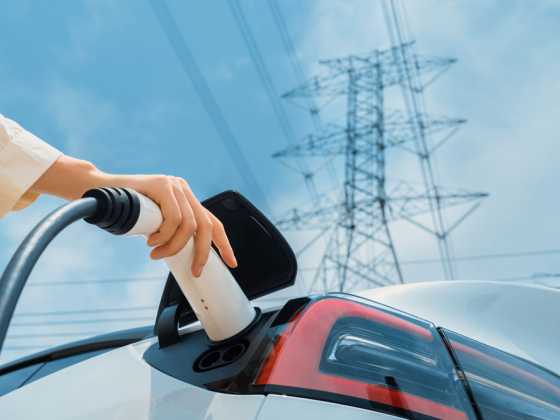2012 - A demanding year?
2012 could mark a change in company car demand due to a combination of significant revisions to benefit-in-kind taxation, according to ACFO.
 Despite company car benefit-in-kind tax increases for most drivers in 2012/13, ACFO believes that careful vehicle selection aided by the continuing focus by motor manufacturers on driving down emissions as a result of technological advances will encourage employees out of cash allowance schemes and back into company cars.
Despite company car benefit-in-kind tax increases for most drivers in 2012/13, ACFO believes that careful vehicle selection aided by the continuing focus by motor manufacturers on driving down emissions as a result of technological advances will encourage employees out of cash allowance schemes and back into company cars.
Company car benefit-in-kind tax thresholds will tighten by a further 5 g/km on April 6, but, crucially, the special 10% rate for vehicles emitting 120 g/km or less, which has been in place since April 2008, will be abolished.
That means drivers at the wheel of company cars emitting 115-119 g/km will see their benefit-in-kind tax bills rise almost 50% in the new financial year as vehicles are catapulted into the 14% tax bracket from the 10% threshold. Meanwhile, drivers of 120 g/km emissions models will have to fund a 50% rise as vehicles move into the 15% bracket.
Employees driving a company car with carbon dioxide emissions up to 99 g/km will continue to see their tax bill unchanged with those at the wheel of vehicles with emissions of 100 g/km to 114 g/km moving into the 11-13% tax thresholds. Ironically, drivers of cars with emissions of 121-124 g/km will see no increase in their tax bills as vehicles will remain in the 15% tax bracket, while those driving cars with emissions of 125 g/km or higher will see bills rise as emission thresholds tighten 1%.
Therefore, ACFO says the steep rises at the lower end of the benefit-in-kind tax scale will significantly influence vehicle choices being made over the coming weeks and months.
Personal Budget Squeeze
Chairman Julie Jenner said: “Evidence suggests that with personal budgets being squeezed due to the global economic crisis, drivers are firmly focused on how much tax they are paying and their disposable income.
“Although almost every driver will see their company car tax bill rise from April 6, 2012, analysis reveals that it is significantly cheaper to pay tax on a company car than to run your own vehicle.”
The RAC recently calculated that the average annual cost of owning and running a car had soared 14% in the last 12 months - three times the current inflation rate - to almost £6,700.
Ms Jenner said: “A basic rate taxpayer eligible for a company car need pay no more than £50-60 a month in tax for that vehicle and a 40% taxpayer could select, for example, a BMW 5 Series, for less than £150 a month even taking account of the 2012/13 tax rises.
“Employees cannot run their own cars for that amount of money. Although company car benefit-in-kind tax rates will increase for 2012/13, drivers and employers alike should do their own calculations and they will realise that through the careful selection of low emission vehicles, a company car is the financially astute choice in these austere economic times.”
Ms Jenner added: “Economic conditions mean that all employees are much more focused on the cost of living. If cash allowance drivers calculate the cost of funding and running their own vehicle, including service and maintenance bills, they will be pleasantly surprised to discover that they can be better off by opting back into a company car.”
A further 1% company car tax rise is due in 2013/14 and ACFO has already called on the Government to announce in the spring Budget benefit-in-kind tax rates for the following three or four years to aid vehicle selection planning by employers and employee alike.
Advance Notification
Currently benefit-in-kind tax rates are only known to the end of the 2013/14 financial year, but a recent industry survey backed ACFO’s call for improved advance notification of rates with 61% calling for four years and 21% for three years.
It is believed that HMRC is against issuing three or four-year tax rate notification because of the possible need to change thresholds. However, Ms Jenner said: “We would rather have four-year notification that might necessitate a slight change than the Government establishing a scheme that encourages the uptake of low emission cars and then uses the tax system to plug any cash deficit in its finances.
“If increased advance notification is not given drivers may not be prepared to take the risk of taking a step into the unknown when choosing a company car and could opt into a cash alternative scheme which invariably means driving a higher emission car.”
Ironically, the upper company car benefit-in-kind tax threshold has been left at 35% since the system was introduced on April 6 2002. In 2002/3 the maximum 35% tax charge applied to cars with emissions of 265 g/km or more, while in 2012/13 the threshold is at 220 g/km (205 g/km for diesel vehicles). It means, for example that the tax bill for the driver of an Audi Q7 6.0 V12 TDI (298 g/km) has theoretically not changed in a decade.
Ms Jenner said: “Instead of continually squeezing drivers who have chosen low emission cars and find their tax bills rising on a seemingly annual basis, HMRC should look at introducing a greater tax burden at the opposite end of the scale. A 40% or 45% tax rate would at least send a ‘green’ signal and raise additional revenue.”
Salary sacrifice schemes
Company car salary sacrifice schemes continue to be on offer at many organisations, but at a recent meeting between ACFO and HMRC the taxman fired a warning shot in the direction of any employer operating what are known as ‘applications of earnings’ schemes.
Ms Jenner said: “Salary sacrifice schemes work very well for some organisations and their employees, but it is vital that they are correctly established and receive HMRC sign-off. Schemes that do not receive HMRC approval may fall foul of tax rules.”
ACFO also continues to be in dialogue with Government officials on a robust analysis, including financial modelling, of the Approved Mileage Allowance Payments (AMAP) system. In calling for a comprehensive review of AMAP rates - paid tax-free to employees who drive their own cars on company business -
ACFO has consistently argued that the current 45p (and previous 40p) per mile reimbursement for the first 10,000 miles and 25p a mile thereafter is over-generous for higher-mileage cases, and actually works against the Government’s environmental approach to discourage unnecessary mileage.
Ms Jenner said: “A less ‘broad brush’ and significantly more refined system than the current one could, for example, see the introduction of a number of mileage breakpoints starting from as low as 2,000 or 4,000 miles. An initial higher reimbursement rate than the current one would then be set with rates reducing on a sliding scale linked to increasing mileage thresholds. Feedback from the ACFO membership clearly indicates that the ‘broad brush’ approach taken by Government is not working.”
Further information
ACFO’s purpose is to help fleet operators to improve the quality and cost-effectiveness of their business travel operation. For further information visit
visit acfo.org






